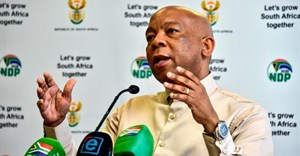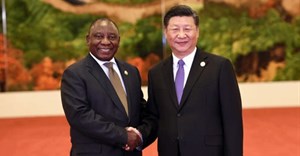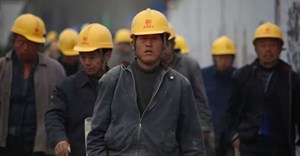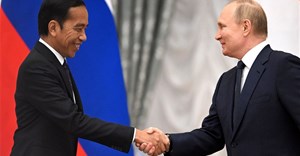
Xi has created a Chinese Bloc that the Paris climate talks cannot ignore

The changing status is reflected in the hopes for COP21. If China was the villain of Copenhagen six years ago, Xi is attempting to portray the country in a different light these days. In Paris he says he wants greater compromise with the West with pledges to cut China's greenhouse gas emissions, apparently recognising criticism over the country's green record.
However, China will not face such criticism alone. After decades of Maoist isolation, robust diplomacy means a significant number of developing nations are likely to support any motions that China proposes.
China has close ties with a number of African nations, for instance. After he leaves Paris, Xi will head to South Africa, for a summit with African leaders.
At the same time, this "Chinese bloc" is not solely confined to Africa. Russia has sought to build closer ties with China in a bid to wean itself off the European market after being hit with sanctions after conflict in Ukraine. This can be seen in the number of trade deals between China and Russia as well as the growing political and military cooperation between the two states.
However, China has also pursued closer relations with a number of former Soviet states in what was traditionally viewed as Russia's sphere of influence. Indeed, these states, most notably Kazakhstan, have viewed China as a possible balance to Russian ambitions in the region, as shown by Sinopec's recent agreement to invest in Kazakh oil and gas.
What unites the 'Chinese bloc'?
These nations are scattered about the world but there are a number of common linkages. Many are rich in oil, gas, fertile farmland or other natural resources. Where Chinese foreign policy was once dominated by the simple pursuit of recognition, these days its diplomatic offensives are often motivated by a desire to control natural resources in order to fuel economic progress.
In return for control of these resources, China provides development assistance and technical know how, most notably seen in the boom in infrastructure projects throughout Africa. On the other hand, China provides Russia with an alternative market for its oil and gas as well as a source of trade deals favourable to China.
Many of China's allies are also are governed by long-standing regimes such as Mugabe's in Zimbabwe, the ANC in South Africa or Putin's United Russia party without an obvious successor to their veteran leadership. Should these regimes be replaced, China's relations with its allies could rapidly change.
A certain hostility to the West is possibly the most controversial linkage between China's allies, which in turn has led hawks to believe that the Chinese faction is anti-Western. After all, this bloc emerged at the same time as talk of the market-friendly "Washington Consensus" in international finance being replaced by a "Beijing Consensus" based on the Chinese economic model, along with the development of the Shanghai Cooperation Organisation, an Asian counterbalance to the EU, US and NATO.
These international alliances put president Xi in a potentially formidable position in the Paris talks, and a degree of Chinese support will be necessary for any proposed motion to succeed. However, at the same time, Xi perhaps has more power to make any changes and accommodate Western motions than his predecessor Hu had at Copenhagen. This is China breaking with the status quo and playing a more integral global role. In Mao's words, China has not just stood up, it stands tall.![]()
Source: The Conversation Africa

The Conversation Africa is an independent source of news and views from the academic and research community. Its aim is to promote better understanding of current affairs and complex issues, and allow for a better quality of public discourse and conversation.
Go to: https://theconversation.com/africaAbout Tom Harper
Tom Harper is a doctoral researcher in Politics at the University of Surrey.

















